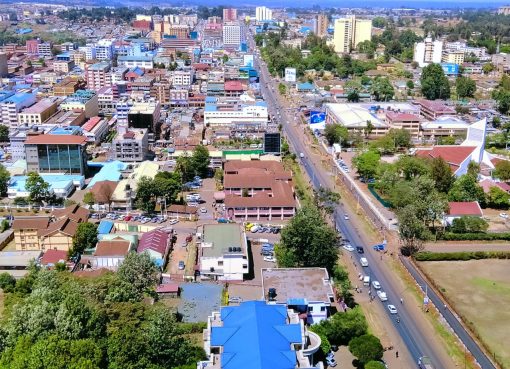Stakeholders in the health sector have developed a biometric-based vaccination management system for new born children in Kenya.
Validation of this new system is taking place through Kenya Medical Research Institute (KEMRI) with a clinical trial that began in September last year at the Kinango Sub-County hospital, Kwale with initial results said to be quite encouraging.
The scientific innovation is being undertaken by KEMRI, NEC Corporation and Nagasaki University, Japan.
KEMRI Ag. Director, Prof. Sam Kariuki said in a press statement Tuesday that the digital system will effectively and seamlessly manage vaccination history and scheduling using fingerprint identification for new-born children and voice recognition for caregivers.
“This technology marks the first time that biometric identification is being used at a hospital to identify new-born children at the time of vaccination, including those immediately after delivery,” Kariuki said.
He said as of November 2022, data from more than 300 caregivers and new-born had been registered, including the vaccination histories of more than 150 new-born.
Prof Kariuki noted that the new technology combines fingerprint identification for children and voice recognition for caregivers to confirm not only their identity, but also to reliably manage vaccination histories and schedules.
The KEMRI Director said the technology thereby ends up promoting the implementation of appropriate vaccinations for new-born and children during the first 24 months of life.
Going forward, demonstration tests that network among multiple hospitals will begin, aiming for full-scale introduction throughout Kenya by the end of 2023, and more international deployment in the future.
“We are excited that KEMRI together with its partners, is spearheading this landmark study that is not only in real time, but also expected to support policy and action towards the attainment of better health outcomes and Universal Health Coverage,” he said.
“I am happy to announce that this tool will be validated by KEMRI researchers in partnership with Kinango Sub-County Hospital in Kwale, NEC Corporation and Nagasaki University,” Kariuki added.
“I expect that this vaccination management system will expand the coverage of vaccinations for children under 24 months old through accurate identification methods for mothers and children in Kenya,” he stated.
Prof. Miriam Khamadi Were, the Laureate, 1st Hideyo Noguchi Africa Prize also expressed great expectations for the research to act as a guideline for precise vaccination management featuring new-born and caregiver identification to become an important contributor to Universal Health Coverage.
Since voice recognition can be performed almost instantaneously, this system can minimize the burden placed on caregivers. Medical institutions can also introduce voice recognition with little to no change to existing procedures.
Rather than using conventional fingerprint authentication methods to identify new-born, researchers developed a new method with which fingerprint pattern information is extracted from fingerprint images and a new-born child can be identified by combining fingerprint pattern data from multiple fingers.
However, many children around the world continue to lose their lives at a very young age. In 2020 alone, approximately 5 million children died before reaching their fifth birthday, even without taking into account the impact of Covid-19.
KEMRI said that about half of these children under the age of five, or 2.4 million children, passed away within 28 days of birth, with many of these deaths considered preventable.
Meanwhile, in some regions in the world, the use of digital technology has not advanced due to delays in the development of electricity and telecommunications infrastructure. In these regions, basic information such as who was born, when, where, and what type of medical services they have received may only be recorded by hand.
In such cases, health care providers cannot easily ascertain which medical services are needed for the caregivers and children who visit their hospitals, which is one of the factors hindering efforts to ensure that children receive the vaccinations they need.
The implementation period has been set for the period September 2022 to March 2023 at the Sub-County Hospital in Kwale with approximately 1,000 caregivers and new-born to participate in the trial.
By Joseph Ouma




